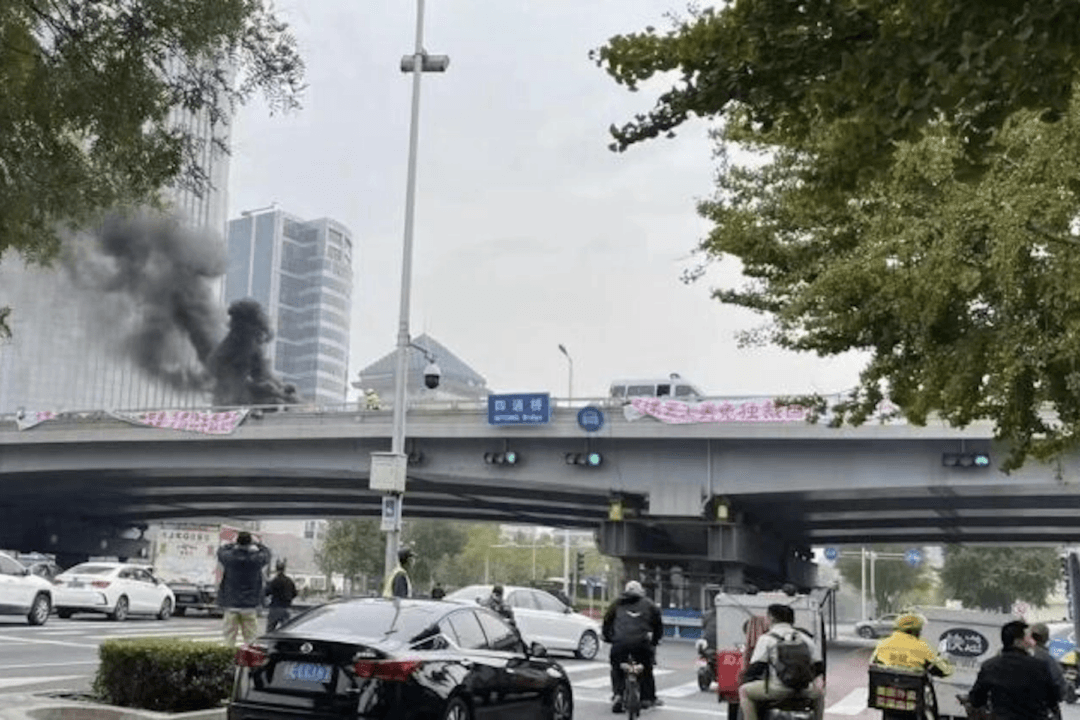Chinese authorities are grappling with internal alarm following a rare public protest in Southwest China, where three large banners denouncing the Chinese Communist Party (CCP) were displayed on an overpass in a busy commercial district—and remained in place for nearly three hours before being removed.
According to Chinese dissident Yuan Hongbing, who spoke to The Epoch Times citing an insider, Beijing’s alarm stemmed not from the content of the protest banners, but rather, a potentially crumbling foundation in the CCP’s tightly controlled surveillance state.





